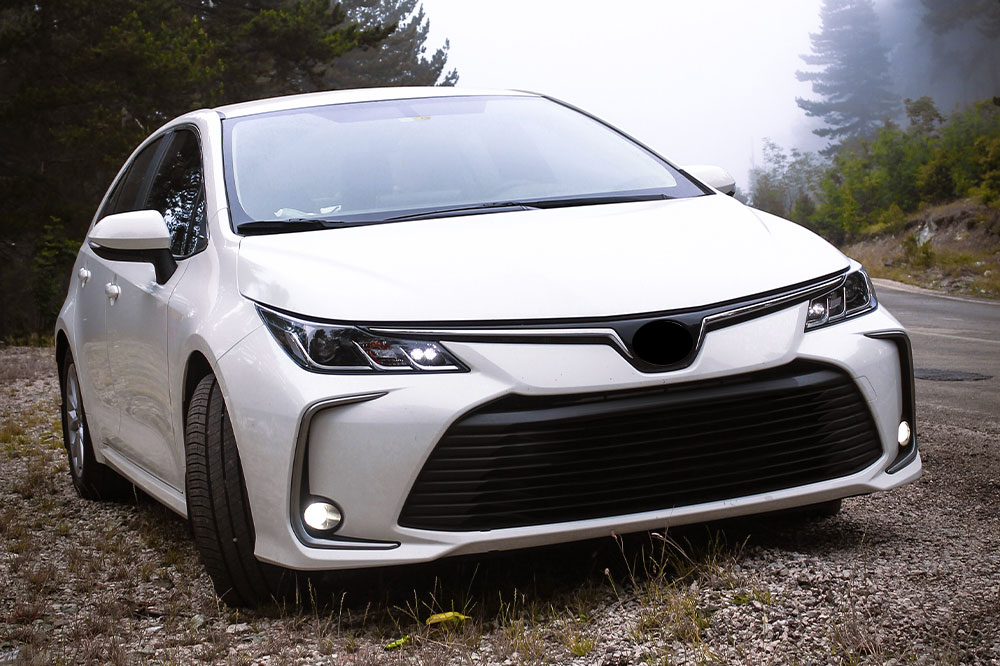5 Highlights of the Toyota Prius Plug-In Hybrid
The Toyota Prius plug-in hybrid, also known as the Prius Prime, has long been the go-to choice for buyers valuing fuel efficiency and sustainability. This car, after all, is known for its incredible mileage, low carbon emissions, ease of use, and solid Toyota reliability. The Toyota Prius plug-in hybrid has a well-insulated, comfortable cabin and many convenience features. To simplify buyers’ decision-making about purchasing it, here are some of the car’s highlights:

Interior quality and space
The Toyota Prius plug-in hybrid has an airy and high-quality cabin. The interior has several soft-touch materials and a few solid plastic parts. The car’s dashboard is uniquely-styled, with an unconventional centrally-placed instrument cluster (unlike most cars, wherein the instruments are behind the steering wheel), and a short electronic gear shifter sticking out from the middle.
The Toyota Prius plug-in hybrid has a touchscreen-based infotainment system to control the sat-nav, air-conditioning, media, and other functions. While the system is easy to operate, the touchscreen occasionally has glare, especially in sunlight. Apart from that, users will find reaching and using all the switches and buttons easy as the cabin is very ergonomic.
The Prius’ cabin comfortably seats five adults. Passengers in the front and rear rows will have ample head room (39.4 inches in the front, 37.2 inches in the rear), leg room (43.2 inches, 33.4 inches), shoulder room (54.2 inches, 53.0 inches), and hip room (53.7 inches, 51.6 inches). Additionally, getting in and out of the vehicle is also remarkably easy due to its wide doors and well-configured seat design and height.
The car’s large battery eats into its boot space, reducing its cargo storage capacity to 19.8 cubic feet, lesser than what a standard Toyota Prius offers.
Engine, performance, and fuel economy
The Toyota Prius plug-in comes with a hybrid electric/inline-four cylinder petrol engine. This 1.8-liter powertrain makes 121 hp of power. The hybrid engine sends its power to the front wheels through a Continuously Variable Transmission (CVT) to maximize the car’s fuel efficiency. The Toyota Prius plug-in hybrid may not be the quickest, but it is an efficient and mobile city car. The vehicle’s top speed is 102 mph, and it goes from 0-60 mph in 10.3 seconds.
As expected, fuel efficiency is Prius’ biggest strength. The Toyota Prius plug-in hybrid returns 55 mpg in cities and 53 mpg on highways, bringing its combined economy to 54 mpg. With an 11.4 gallon-fuel tank, the Toyota Prius plug-in hybrid has a range of 627 miles in the city and 604.2 miles on the highway.
Ride and handling
The Toyota Prius plug-in hybrid’s suspension has a hint of stifness, making its ride quality noticeably bumpy over broken tarmac. So, the car’s ride can feel a bit unstable on poor road surfaces. The suspension performs much better on smoother tarmac, meaning that the car rides stably on highways.
The car’s steering, albeit light and easy to use, can be slightly slow while cornering. This aspect makes the car’s handling slighty floaty, especially on bendy roads. The steering feels more at home on crowded city roads. This quality makes the Prius a nimble city car.
Safety features
There are several standard safety features, including a lane departure warning accident avoidance system, pre- and post-collision safety systems, airbags, stability control, traction control, a 4-wheel Anti-lock Braking System (ABS), ventilated front disc brakes, solid rear disc brakes, a tire pressure monitoring system, auto delay off headlamps, daytime running lamps, LED headlamps, and many others, in the Toyota Prius plug-in hybrid.
Variants and price
The Toyota Prius plug-in hybrid comes in three variants, the LE variant, priced at $29,245; the XLE variant, priced at $31,025; and the Limited variant, priced at $35,025. These are base prices and subject to change.